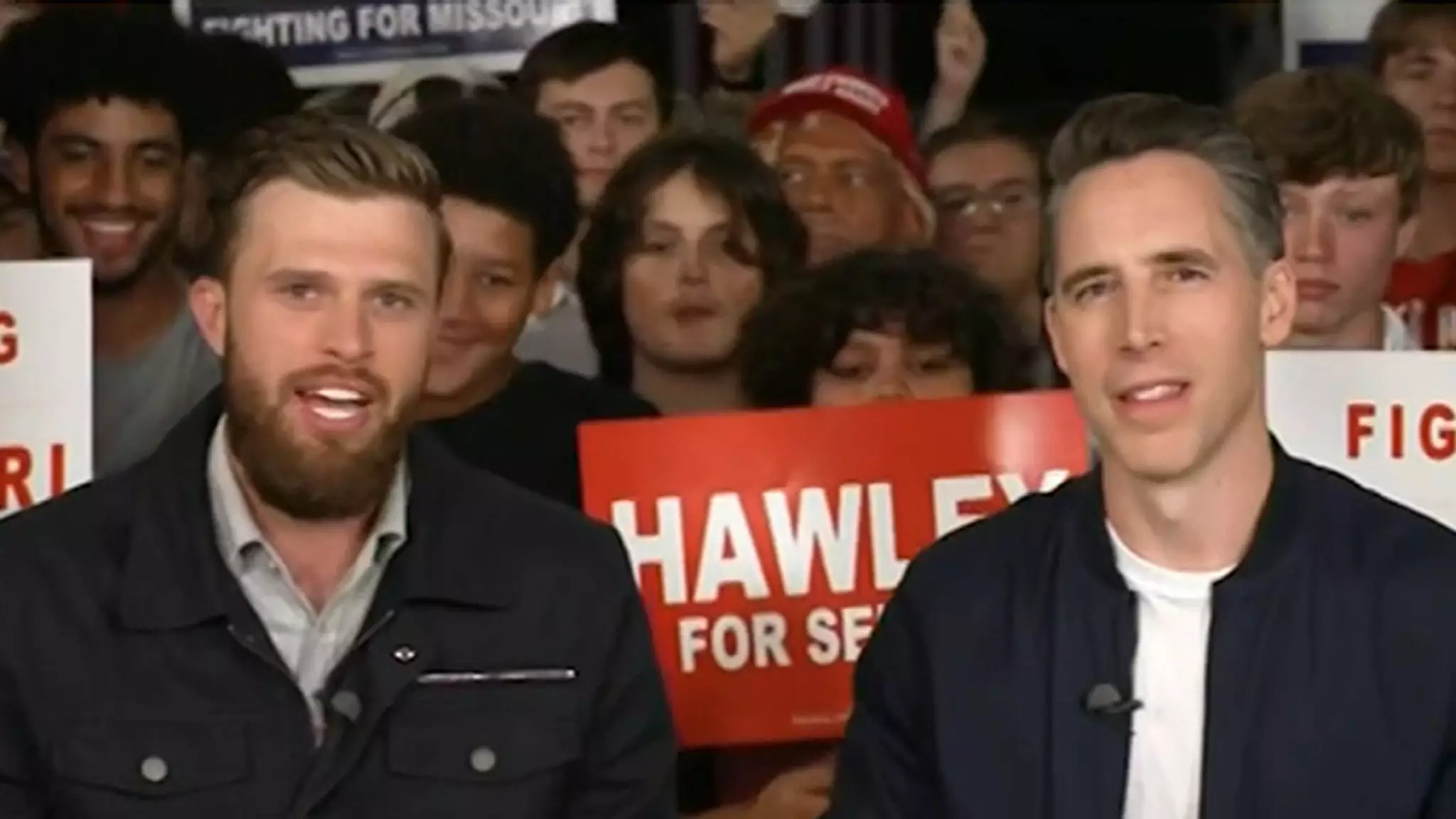In a landscape that mingles professional sports with political ideologies, Kansas City Chiefs kicker Harrison Butker has emerged as a vocal advocate for pro-life principles during a recent campaign event in Missouri. While supporting U.S. Senator Josh Hawley, he proclaimed his backing for former President Donald Trump, labeling him the “most pro-life president.” Butker’s statement isn’t merely a nod to political allegiance; it reflects a deeply ingrained belief system centered around his faith and the values he cherishes.
Butker, a player who has found tremendous success in his NFL career, prioritizes the issue of life over other political agendas. “The pro-life topic is the most crucial topic for me,” he emphasized in a recent Fox News appearance. This assertion elevates the discourse surrounding his support for Trump from mere political endorsement to a moral imperative. By framing his support as a commitment to “the most vulnerable” in society—namely, the unborn—Butker positions himself at the intersection of faith, football, and fierce advocacy.
Butker’s assertive stance on pro-life issues has garnered attention not only for its political implications but also for the backlash he faced after a commencement speech at Benedictine College, where he was accused of insensitivity toward women. This criticism underlines a significant challenge for public figures: the dichotomy between personal beliefs and public perception. Butker expressed regret that his words were “taken in a poor manner,” suggesting that his intentions were misconstrued.
His clarification that his speech aimed to celebrate the role of homemakers hints at the complexities surrounding gender roles in contemporary discourse. Butker stresses that he honors those who choose to dedicate their lives to caregiving, a view that can often be overshadowed by polarized debates around feminism and choice. His perspective invites deeper conversations about the societal value placed on domestic roles, especially in a world that often praises professional achievements over familial contributions.
The Kansas City Chiefs organization is no stranger to the political arena, as evidenced by Butker’s endorsement and the tacit support from other team members like Brittany Mahomes, who appears to support Trump as well. However, the political affiliations of prominent players like Patrick Mahomes and Travis Kelce remain ambiguous. Mahomes, as the NFL MVP, represents a high-profile figure whose political engagement could sway public opinion, yet he has refrained from vocalizing his stance. This room for interpretation highlights a broader cultural phenomenon in sports, where athletes grapple with the implications of political expression.
As the election draws near, the collision of sports and politics will likely intensify, prompting fans and players alike to navigate their identities within these spheres. Butker’s commitment to faith-based values presents an intriguing case of how professional athletes leverage their platforms—balancing personal belief systems with the evolving landscape of public opinion.
With the election just weeks away, the charged environment surrounding pro-life advocacy, personal values, and athletic celebrity raises vital questions about the role public figures play in shaping societal discourse. Harrison Butker’s journey reminds us that personal convictions can manifest in powerful ways, influencing not just voting behavior but the very fabric of discussions we have about life, faith, and societal roles. As we brace ourselves for the electoral consequences, Butker’s narrative will undoubtedly remain a focal point in the ongoing dialogue between sports and politics.

